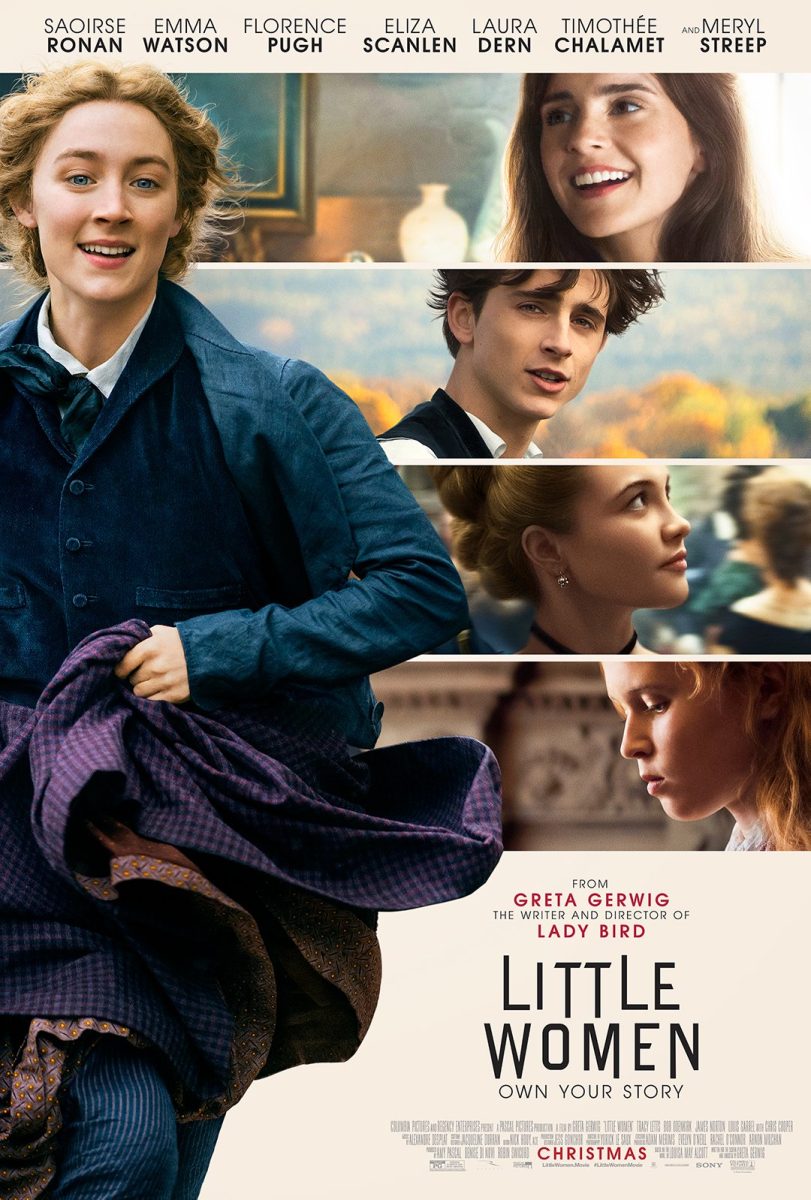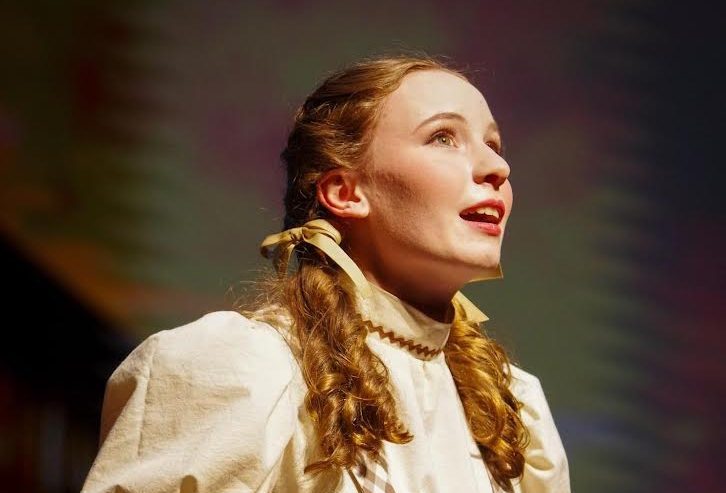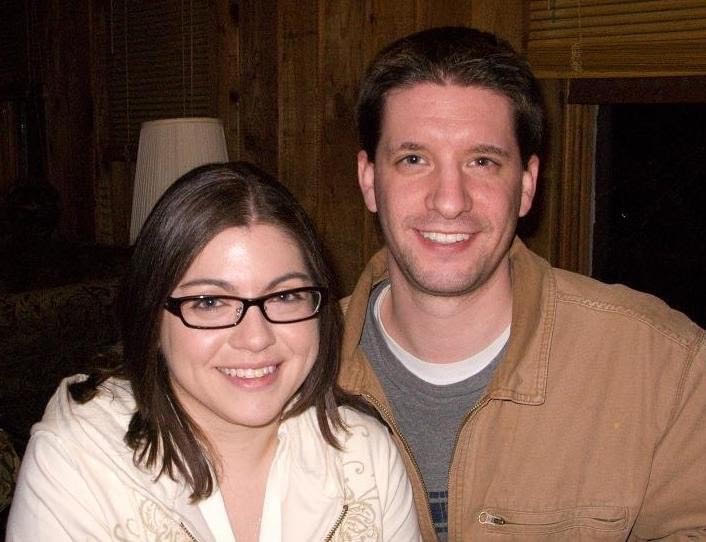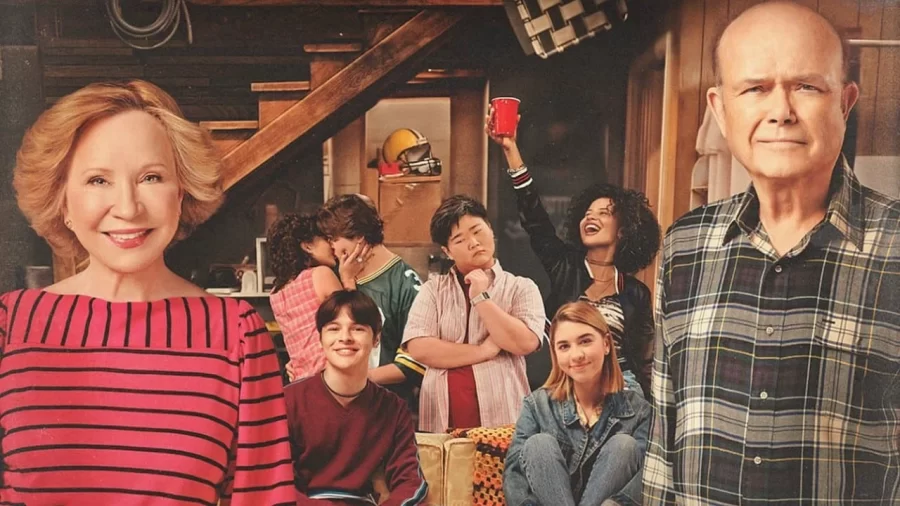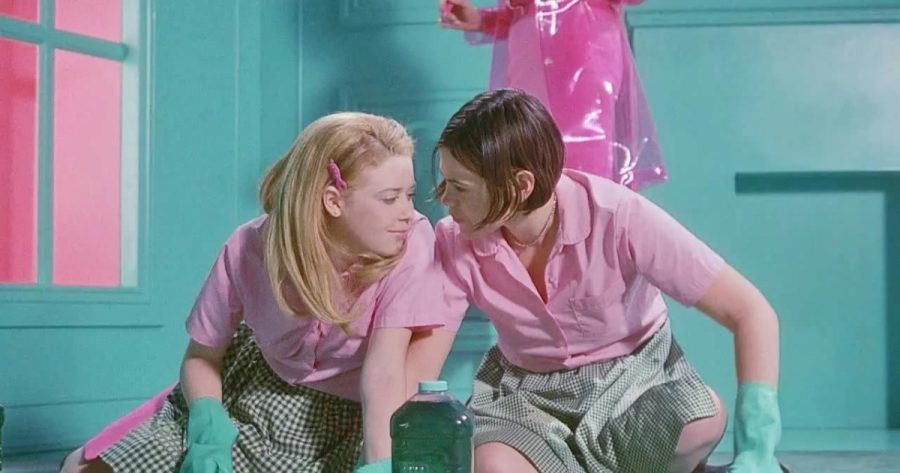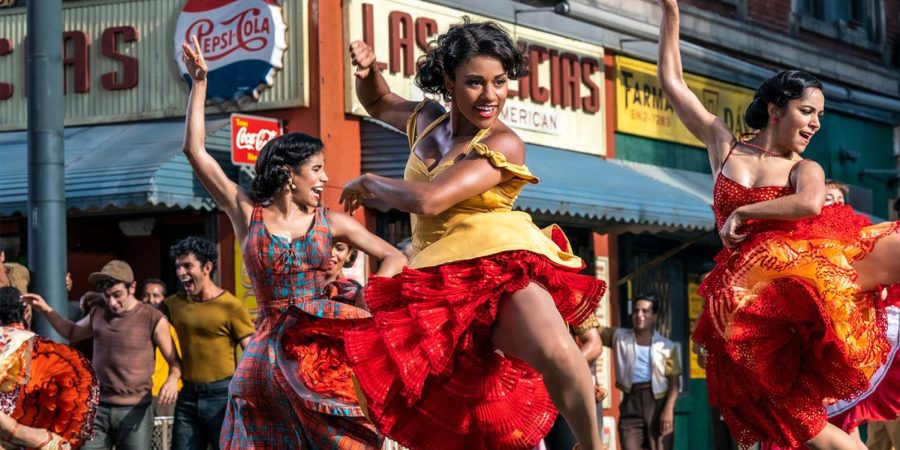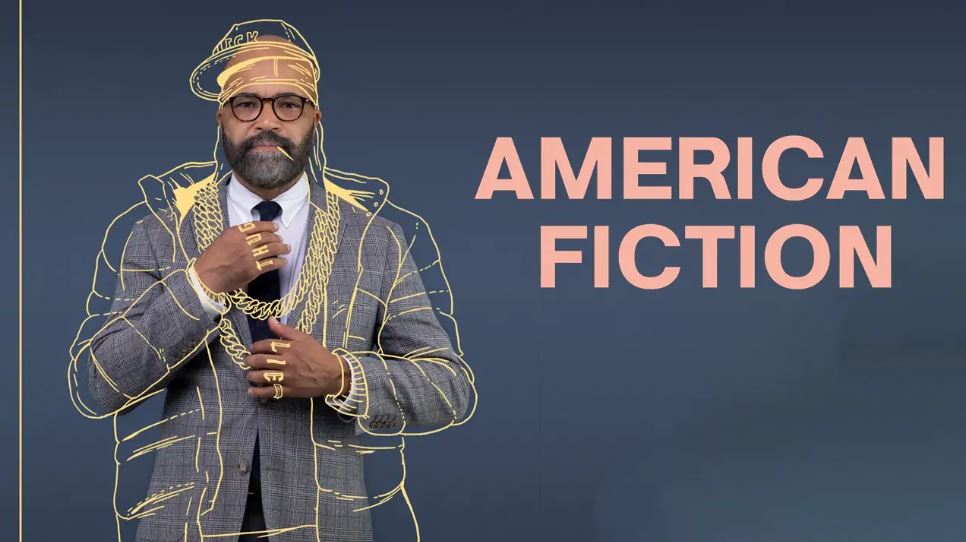“Little Women” is a beam of light in a world of depressing and dark movies. Not only is it joyful, it is women centric in a way that feels authentic, letting the main characters be different in their hopes and aspirations, yet all equally important and valued..
The movie centers around Jo and her relationship to her three sisters – as well as romantic interests. Jo, played wonderfully by Saoirse Ronan, is the stereotypical tomboy. “I can’t get over my disappointment at being a girl,” she says at one point. On the other hand Meg, the second oldest sister who is played by Emma Watson, has more traditional aspirations for a woman at that time. “I want to get married,” Meg says to Jo. “I want a home and a family. Just because my dreams are different then yours doesn’t make them unimportant.” Jo March dreams of becoming a published novelist. As both protagonist and narrator of the film, Jo guides the plot and heightens the women-centric theme: a woman telling women’s stories.
Directed by Greta Gerwig (director of “Barbie” and “Lady Bird”), the plot threads between a modern adult world, set in 1860’s Massachusetts, and a warmer, family childhood. The switch between the timelines is artfully and confidently done by Gerwig, trusting the audience to infer the shifting time periods and guiding them along with subtle lighting and angles. The childhood scenes are warmly crafted, with a realistic feel as many characters are often talking at once.
Although the scenes feel homey and comforting, they are not free of tension and anger. In one scene, Amy (Florence Pugh), the youngest sister, is not invited to a dance that the two older sisters, Jo and Meg (Emma Watson) are attending. Jo taunts her and right before the two sisters leave, Amy shouts, “You’ll pay for this Jo March!” She follows through with her threat. (Spoiler alert – although, can you call it a spoiler alert when the novel was written in 1868?)
Amy burns the only copy of Jo’s novel, which leads to intense backlash and anger by Jo. The scene flip flops between anger from one sister to the other, quickly followed by remorse.
Romance is introduced in the form of Theodore “Laurie” Laurence (Timothee Chalamet), who is the grandson of a rich neighbor. Chalamet is well cast in the role; his acting feels easily boyish and youthfully dramatic. He lives with only his grandfather and tutor in a house that feels overly expansive and grand in comparison with the March’s cozy home. Production designer Jess Gonchor (who also designed for “True Grit” and “The Devil Wears Prada”) subtlety used beautiful sets and costumes to enhance Chalamet’s opulent, but comparatively joyless life. It’s easy to see how Laurie would be attracted to the more modest, but much more love-filled family.
Other characters end up being romantically involved with the sisters, but the main focus stays on Laurie. Laurie starts off as a friend and feels part of the family, with every sister interacting with him and becoming close quickly. Making the friendship front and center and more important than the romance authenticates the feeling of a real romance when it finally does happen.
Greta Gerwig’s 2019 “Little Women” lets women be women in their own right, however they want to be. Although it’s an adaptation of Louisa May Alcott’s famous 1868 book some things are different. The most important difference? That this film stands alone as an increasingly rare art form: a happy movie.



